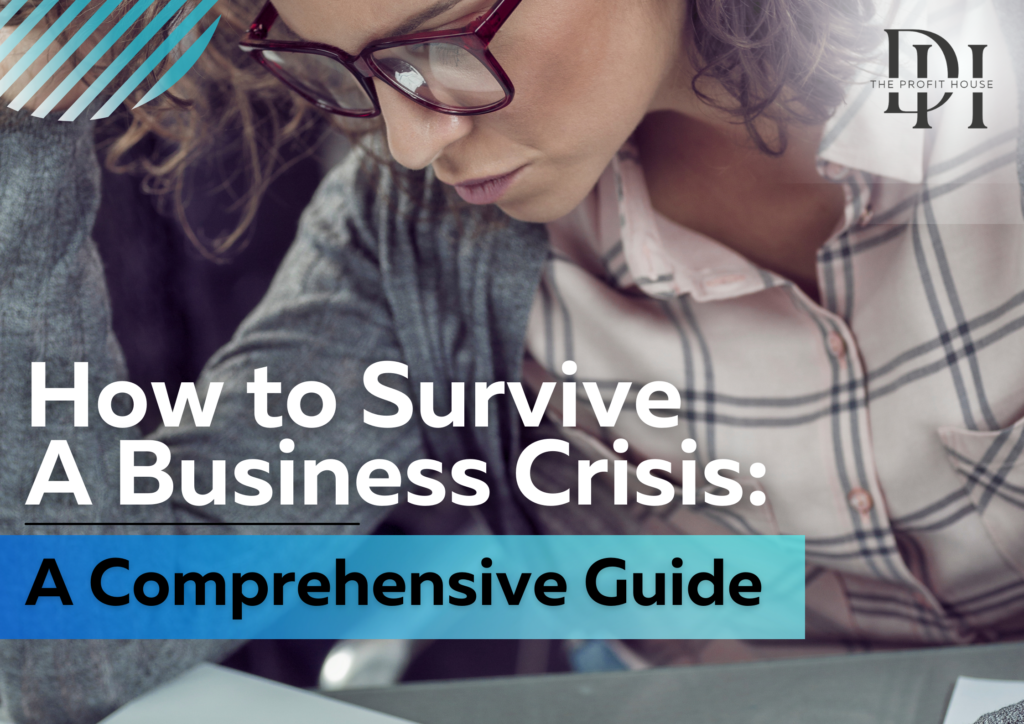Crises and disasters can happen to any business at any time, whether it’s due to internal or external factors. But if you’re prepared, you can limit the damage significantly and even come out stronger on the other side. In this guide, we’ll cover the three main types of business crises (financial, operational, and environmental) along with how to identify signs that you’re in one and some strategies you can use to get through it. Learn how to survive any business crisis today!
Handling Negative Reviews the Right Way
When it comes to negative reviews, there’s a right way and a wrong way to handle them. The key is to stay calm and professional. Don’t take the review personally, and don’t get defensive. Instead, try to see it as an opportunity to improve your business. Thank the customer for their feedback, and see if there’s anything you can do to make the situation right. If you handle it well, a negative review can actually be a good thing, showing potential customers that you’re committed to customer service. On the other hand, if you handle it poorly, it can damage your reputation and drive away business. So next time you get a negative review, keep your cool and do your best to turn it into a positive.

Let’s start with example of a poor way to respond
Suppose someone writes in a 1-star review that they purchased your product but never received it; meanwhile, other customers are raving about how quickly their orders were shipped out. The wrong way to handle it is by replying with something like “Your order has been sent – check your email!” (And then nothing happens). This just makes things worse. It shows that you’re not listening to your customer, which will make them more likely to leave another negative review.
Instead, apologize for any inconvenience and ask for additional information so you can look into it further. Then follow up again after a few days (just not too many days) and let them know what happened (if anything). If there was an error on your end, offer an immediate refund or replacement item. You might even consider going above and beyond with a small gift card or discount code for their next purchase. After all, sometimes people write bad reviews because they feel slighted somehow—and showing them some love will help restore goodwill between you and them (and maybe even other reviewers). This isn’t just good business; it’s also good customer service.
But here’s where things get tricky: when dealing with someone who is upset about the service they received or they didn’t get what they were expecting.
The solution
If you’re not able to make it right immediately, try offering them an alternative. This might be something like giving them a discount on their next purchase or sending them a free sample of something else from your store. If you don’t have anything else to offer, then just say so and promise that you’ll make it up to them in some way in the future (and follow through).
Finally, remember that it’s better to take your time than rush into responding without thinking first. Don’t reply until you’ve had time to calm down and consider how best to respond (and maybe even sleep on it for a night). The last thing you want is for your response—no matter how much passion you put into it—to come across as angry and defensive.
Hiring Great Employees in Times of Crisis
With so many businesses struggling to stay afloat during the COVID-19 pandemic, it may seem like a strange time to be thinking about hiring new employees. However, there are a few silver linings to the current situation. First of all, many people who have been laid off or furloughed are looking for new opportunities, which gives employers a wider pool of talent to choose from. Secondly, the downturn in the economy has made it easier to find and afford office space and other necessary resources. And finally, the current crisis has created a need for certain types of businesses and services that didn’t exist before, giving entrepreneurs an opportunity to start something new.
If you’re thinking about hiring in the near future, here are a few tips to help you find great employees:
- Define the role you’re looking to fill. This may seem obvious, but it’s important to take some time to really think about what you need from a new hire. What skills and attributes are required for the role? What can you afford to pay? Answering these questions will help you narrow your search.
- Utilize social media. Platforms like LinkedIn are great for connecting with potential candidates from all over the world, while Twitter and Facebook can be used to find people in your local area. These platforms also make it easy to share job openings with friends and acquaintances, which can help you quickly find someone who’s interested in working for you. If you’re looking for someone who’s tech-savvy, try posting on sites like Stack Overflow or GitHub; if you’re seeking an experienced manager, reach out to alumni groups at local colleges and universities; if you need an employee who can speak multiple languages, search on Google Translate or Skype; and so on.
- Hire slowly. It’s tempting to rush into hiring someone as soon as you find someone who seems like a good fit, but resist that urge. The more time you spend with each candidate, the better your chances of finding someone who is truly right for your company. For example, if you’re looking for an employee who can work on multiple projects at once, it’s important to give them time to complete other tasks so they can demonstrate their ability in action rather than just telling you about it. The more information you have about a candidate’s skills and abilities, and their personality and interests, the easier it will be for you to make an informed decision about whether or not they’d be a good fit in your organization.
- Consider non-traditional candidates. If you’re looking for someone with specific skills, it’s easy to fall into a trap of only considering people who have those skills. For example, if you need an accountant, you might only consider people who have worked as accountants in the past—but that’s not necessarily going to get you your best candidate. It’s worth taking some time to think about how your ideal candidate could potentially learn whatever skills they don’t already have, because it’s often easier and cheaper than trying to find someone with all of those skills right out of the gate.
- Look for potential rather than experience. It’s easy to assume that someone with years of experience is automatically going to be a better fit for your company, but that’s not always true. For example, you might be looking for an accountant who can speak Spanish and has strong Excel skills, but if you find someone who doesn’t have those skills but is eager to learn them, they could end up being an even better employee in the long run. The more time you spend with each candidate, and talking about their background and goals, the easier it will be to tell whether or not they have what it takes to succeed at your company—and how much effort they’ll need from you in order to get there.
- Remember that hiring is a two-way street. Hiring employees isn’t just about finding someone who can do a job for you—it’s also about finding someone who will fit into your company culture and be happy working there. For example, if you’re looking for an accountant who can work independently, but you have an open office plan where everyone works in cubicles next to each other, it might not be a good fit no matter how much experience they have. If you’re looking for someone with specific skills, think about what kind of environment would be most conducive to them learning those skills and thriving at your company; if you’re looking for someone with potential rather than experience, think about what kind of environment would allow them to thrive even without all of those skills right away.
- Look for long-term hires. It’s easy to become caught up in finding someone who can do their job as soon as possible, but you should also look for potential long-term employees. Not only will it help you find better candidates, but it will be easier for them to learn and fit into your company culture if they’re not just looking at a short-term contract. If you’re looking for an accountant, ask them about their goals and what kind of career path they have in mind; if you’re looking for someone with potential, talk about whether or not they see themselves working with your company long term and what kind of opportunities they’d like to have within your organization.
These are just some of the few essential tips you can try for more information on hiring reach out to a HR Specialist.
Putting Together an Employee Disaster Plan
It’s hard to imagine an emergency that would keep employees from coming in, but you never know what disasters could disrupt your operations. What if there was a terrorist attack at your office? How about an earthquake or fire? These things could possibly happen. If you don’t have employee disaster plans in place—and exercises for testing them out—you put yourself and your business at risk. During crisis situations, you’ll want people following well-rehearsed steps and staying calm so they can function as they normally would when everything is fine. At some point, there will be power outages or communications may be down; make sure employees know how to communicate with each other during these situations as well.Here are a few things to keep in mind when putting together an employee disaster plan.
First, think about what kinds of disasters are most likely to occur. This will vary depending on the location and type of business, but common examples include fires, floods, and power outages. Once you’ve identified the most likely threats, you can start developing specific plans for each one.
Next, make sure everyone in the company knows what the plan is. Employees should know who to contact in case of an emergency, where to go, and what to do. It’s also a good idea to conduct regular drills so that everyone is familiar with the plan and knows how to execute it properly.
Finally, don’t forget to review and update the plan on a regular basis. As the business changes and grows, the plan should be updated to reflect new needs and procedures.
By taking these steps, businesses can be better prepared for whatever disasters come their way.
Managing Cash Flow During Difficult Times
Difficult times can mean a lot of things for businesses – less customer demand, less cash coming in, and suppliers who are themselves struggling and therefore demanding faster payment. Any (or all) of these factors can put a real strain on your business’ cash flow. So what can you do to manage your cash flow during difficult times?

One option is to offer discounts for early payment. This can incentivize customers to pay sooner, freeing up some much-needed cash. Another option is to ask your suppliers if they are able to extend terms on invoices (i.e., allow you more time to pay). If they agree, it could help you get through your difficult period without having to take out a loan or find other sources of financing. Also, be sure that you are not taking on too many new clients or projects during these times – especially if you have trouble paying your existing clients and suppliers on time!
The bottom line? When business slows down, don’t panic and make rash decisions that will only hurt your business in the long run.
The Role Communication Will Play in Your Survival
Communication is key in every business, but it’s especially vital when you’re facing a crisis. It’s your best chance at rebuilding trust with clients and reassuring them that they can still rely on you in good times and bad. Communicating efficiently will give you more time to focus on helping your customers through their challenges without constantly fielding questions from worried stakeholders or staff. While working together, make sure everyone understands that now is not the time for inter-office drama. You should be focused entirely on solving problems and getting your company back on track—not bickering about whose fault it was or who should have done what by when. Focus more on action than reaction; proactively solve problems instead of rehashing them over and over again.

Communication will also be key with your staff and vendors, because they’ll need information on what’s happening in order to keep moving forward. Meetings should be regular and scheduled, not just used when things go wrong. Include them in strategy discussions so you can garner their buy-in from early on rather than making last-minute changes—you want everyone on board with decisions, not just out for themselves. If employees don’t feel like their voices are being heard, it could lead to lower morale, which can make them harder to manage when you’re under stress or pressure. And don’t forget about your clients!
The most important communication of all will be with your customers, whether you interact with them on a personal level or not. Your goal is to reassure them that you’re there for them no matter what happens and will continue to deliver excellent products and services for years to come. In order to do that, you need complete transparency about what’s happening at every step of your crisis management strategy—both internally and externally. It may seem counterintuitive, but it’s actually in your best interest to share as much information as possible—even if you don’t have all of the answers yet.
Take Action
So, what do you do if your business is hit with a crisis? The first step is to identify the type of crisis you’re experiencing. Once you know that, you can start developing a plan and seeking out resources to help get you through it. If you need some assistance getting started, The Profit House offers free consultations so that we can help develop a tailored plan for your specific needs. Don’t wait until it’s too late- reach out today for help surviving any business crisis. https://calendly.com/dhfinancial/the-profit-house-complimentary-consultation
References:
https://www.topgrad.io/one-of-the-strategies-you-practice-is-the-five-second-rule-what-are-some-key-aspects-of-this-rule-select-all-that-apply-2/
https://www.forbes.com/sites/theyec/2020/03/24/how-to-handle-negative-customer-reviews-eight-expert-tips/
https://www.thebalancesmb.com/improve-your-small-business-2951413
https://www.powerthesaurus.org/just_make_things_worse/synonyms
https://www.thebalancecareers.com/how-to-answer-the-interview-question-are-you-willing-to-relocate-4799894
https://abc7news.com/worker-shortage-employee-small-business-survival-pandemic/11302346/
https://www.cnn.com/
https://www.thebalancecareers.com/top-best-job-websites-2064080
https://www.thebalancecareers.com/job-interview-questions-about-your-attributes-2060519
https://brainly.com/question/23085083
https://www.nationaldebtrelief.com/cannot-afford-pay-bills/
https://www.employtest.com/hrblog/can-you-objectively-interview-and-hire-a-candidate-you-know-personally
https://www.businesstaff.com/blog-new/an-interview-is-a-two-way-street
https://www.indiehackers.com/interview/how-talking-to-customers-grew-my-business-to-70k-month-b46a87fe2a
https://www.dictionary.com/browse/have
https://genius.com/Franz-ferdinand-walk-away-7-lyrics
https://psychcentral.com/stress/how-to-deal-with-feeling-overwhelmed
https://www.forbes.com/sites/glennllopis/2012/11/26/5-things-we-learn-about-ourselves-during-uncertain-times/


